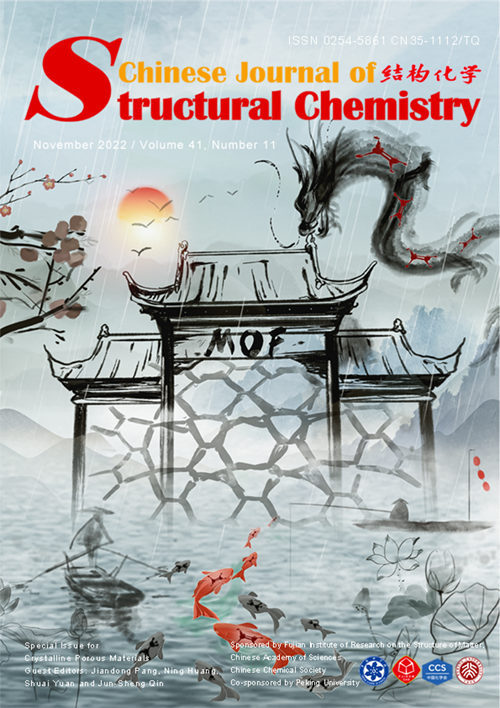
Cover Picture
Recent Advances in C2 Gases Separation and Purification by Metal-Organic
Frameworks
Zhengyi Di, Xinjing Zheng, Yu Qi, Heng Yuan and Cheng-Peng Li*
Submit a ManuscriptRecent Advances in Metal-Organic Cages-Based Composite Membranes
Guoliang Liu, Xiao-Qin Liu and Lin-Bing Sun*
Chin. J. Struct. Chem. 2022, 41, 2211100-2211109 DOI: 10.14102/j.cnki.0254-5861.2022-0178
October 31, 2022
membrane separation, metal-organic cage, mixed matrix membranes, thin film nanocomposite membranes
ABSTRACT
Conventional polymeric membranes face several
limitations, such as the trade-off between permeability and selectivity, and
physical aging or membrane fouling. In this case, fabrication of composite
membranes, usually including mixed matrix membranes (MMMs) or thin film
nanocomposite (TFN) membranes by introduction of porous materials as fillers has gained much attention. To achieve excellent membrane
performance, it is of great importance to select proper porous materials to
avoid agglomeration or precipitation during the composite membrane fabrication
processes. Metal-organic cages (MOCs) have been explored as additives for the
fabrication of defect-free composite membranes owing to their diversified
topologies, well-defined pore structures, nanoscale size, and excellent
solubility. This review mainly focuses on the recent advances in applications of MOCs for membrane
separation, including synthetic artificial channels, reverse osmosis,
nanofiltration, pervaporation and gas separation.
Besides, two types of MOCs that have been extensively investigated for
composite membrane fabrication are also highlighted. Furthermore, challenges
and possible directions are also discussed in details, hoping to provide
insightful guidance on the development of more MOC-based membranes with
impressive separation performance.









